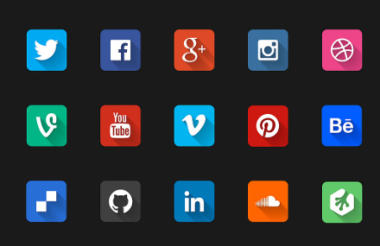News highlights
Cancer Research UK has been targeted by Russian hackers, according to reports by the Daily Telegraph and then by the Daily Mail. The papers said that members of Magecart, an anonymous Russian group of cybercriminals, targeted the customers of CRUK's online shop in 2016. Read the full story.
British Heart Foundation has become the first UK charity to accept donations via Amazon’s virtual assistant, Alexa. People can also arrange to have their old furniture and electrical items collected using Alexa-enabled devices such as the Amazon Echo. BHF has also launched an Alexa skill – a function that can be downloaded from an app store – that will allow people to arrange for the collection of unwanted furniture or make a direct donation. Read the full story.
Charities reported 137 data security incidents to the Information Commissioner’s Office in the first quarter of 2018/19, according to recently published data – a more than sixfold increase from the previous year. The ICO recently published the latest statistics for how many data breaches had been reported to it between April and June 2018. The data showed charities reported 137 seperate data breaches – up 21 for the same period in 2017. This is likely because of change in data protection rules. Read the full story.
Charity umbrella bodies have launched a social media campaign urging charities to share bitesize snippets highlighting the difference they have made and to thank supporters for making it happen. Umbrella bodies such as NCVO, CharityComms, the Small Charities Coalition, FSI, the Institute of Fundrasing and Acevo are all urging charities to use the hastag #YouMadeItHappen on 19 November to thank supporters and raise awareness of the impact charities make. Read the full story.
Latest partnerships
Deafblind UK and Morse-Brown
Deafblind UK has worked with the web design agency Morse-Brown to revamp its website. The charity is hoping to raise its profile and make better use of technology. It has said it also plans to invest more in digital technology in the future.
Rethink Mental Illness and DAM Digital
Rethink Mental Illness has appointed DAM Digital to improve its online presence. The agency was appointed after a competitive pitch and will work with the charity to develop a new digital strategy and create a new website.
Lara King, head of communications at Rethink Mental Illness, said: “We want a new website that will, above all, make all our expert advice and information on mental illness more easily accessible to those who need it. We are confident DAM Digital can help us do this and we are pleased to be working with them.”
National Trust for Scotland and Bank of Scotland and Visa
Two Scottish artefacts have been recreated to include contactless donation technology as part of the “Tap to Preserve the Future” campaign being run by the National Trust for Scotland; the Bank of Scotland and Visa.
A bust of Robert Burns and a 1766 painting of Colonel William Gordon at Fyvie Castle are bespoke creations that took weeks to make using 3D scanning technology. The charity hopes that they will help to raise money because the volume of traditional cash donations is falling.
Simon Skinner, chief executive at the National Trust for Scotland, said: “Like all charities, we face a significant fundraising challenge as cash donations have fallen sharply in recent years. This initiative could not come at a more crucial time and will enable us to accept contactless donations at our sites for the first time.
“It’s only through the support of our visitors, members and donors, that our charity can help to protect Scotland’s natural and national treasures, like The Robert Burns Birthplace Museum and Fyvie Castle, for everyone to enjoy."
Unicef UK and Giveclarity
International aid agency, Unicef UK has launched a new supporter management platform with Giveclarity to improve people’s experience. The charity hopes that the new cloud-based system will give it a single view of the different ways each supporter interacts with it.
Giveclarity is backed by Salesforce, the global customer-relationship management platform, and integrates all supporter communications and fundraising into a single multi-channel solution that takes account of both online and offline activity.
Mark Devlin, chief operating officer at Unicef UK, said: “This is a major project for Unicef UK that will transform our supporters’ experience. A fuller view of every interaction will provide a deeper appreciation of what most interests our supporters about Unicef’s work and, most importantly, how they prefer to receive communications from us. This will help us to communicate more effectively and relevantly with them.
“As our committed supporter base continues to grow, this directly enables Unicef to increase the impact of our protection, education, hygiene, nutrition and vaccination programmes for the world’s most vulnerable children. Therefore, it is vital we ensure that all our supporters feel valued, understood and informed about the work they are enabling.”
British Heart Foundation and Yext
The British Heart Foundation has chosen Yext, a digital knowledge management system, to raise awareness of its furniture stores online and increase footfall.
It works by creating a Facebook place-page for each store which can be used to join discussions about what is happening in the local community. The charity hopes this will increase engagement with local people online, so they can share information about their local shop.
Frankie Dewar, senior digital marketing executive at British Heart Foundation, said: “We offer a fantastic free furniture collections service, as well as great products in each store, and we want to ensure we stay top of mind for the community — the more we collect, the more we sell, the more people we help, the more money we raise for our life saving heart research.”
Insight
Lord Gus O'Donnell, chair of Pro Bono Economics, discusses the importance of data to charities. Read his article.
|
Related articles











